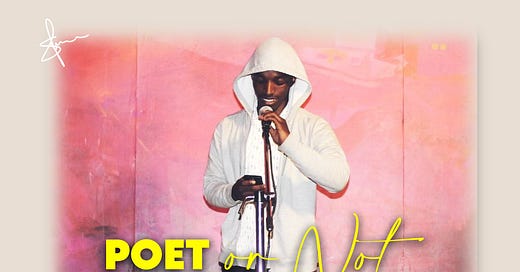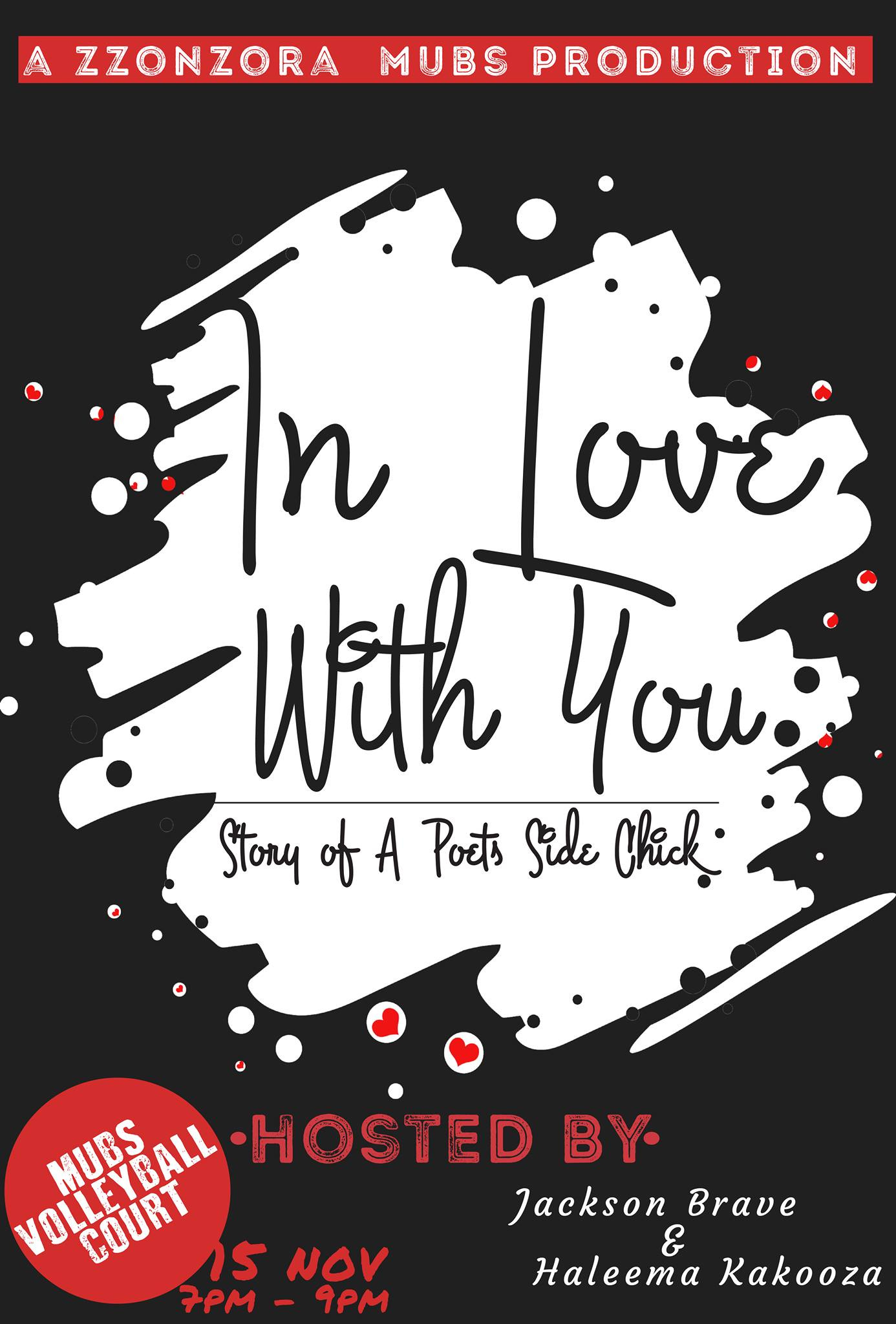The poetry scene in Uganda is a complex mess woven with threads of passion, creativity, disillusionment, and a quest for authenticity.I've witnessed both the soaring highs of poetic expression and the devastating lows of internal conflicts that threaten to unravel the entire fabric.
This blog is a deeply personal reflection on my journey within the Ugandan poetry scene, the challenges we face, and the future I envision for this art form that I hold so dear.
The Early Days: A Love Affair with Words
My love affair with the English language began in primary school. Even at a young age, I was drawn to the rhythm and sound of words. I remember the joy of crafting essays, the thrill of public speaking, and the pride I felt when I won accolades for my efforts. These early experiences laid the foundation for what would become a lifelong passion for words, even before I fully understood the power they held.
In secondary school, my relationship with language deepened. I became obsessed with the dictionary, spending hours studying it, not just to learn new words but to understand their nuances and how they could be strung together to create something beautiful. This obsession led me to write letters that were so complex, they baffled my peers. It wasn’t just about communication; it was about creating something that resonated, something that could linger in the mind long after the words were read.
It wasn’t until I stumbled upon the works of literary giants like Edgar Allan Poe, Oscar Wilde, H.P. Lovecraft, Mary Shelley and William Shakespeare that I realized this fascination was something more profound—it was the beginning of a love for poetry. Their mastery of language, their ability to evoke deep emotions with just a few lines, struck a chord in me. I started writing poetry, not as an assignment, but as a means of self-expression.
My first significant encounter with the poetry community came in 2012, during the Luminous Sorrels Poetry Slam. Competing against poetic giants like Gayaza, KCB, Nabisunsa and Namagunga, I was filled with doubt. I was young, inexperienced, and unsure of my place in this world of words. But to my surprise, I won the slam. That victory wasn’t just a win in a competition; it was a validation of my voice, a confirmation that my words had power. It was the spark that ignited a deeper passion for poetry.
Following that win, I threw myself into writing. I filled notebooks with poems, each one a piece of my soul poured onto the page. My friends began to ask for copies of my poems, keeping them as souvenirs. This was a time of creative flourishing, where I felt connected to my art in a way that was both exhilarating and fulfilling. If only they kept them - I would have served y’all with an amazing collection of heartbreaks and love.
The Struggle: Disconnect and Rediscovery
But as life often does, it threw a curve ball. High school brought with it new challenges and responsibilities. I was forced into a different academic path—MEG (Mathematics, Economics, Geography) —one that didn’t leave much room for literature or poetry. My focus shifted to my studies, and the holidays became a time for rest, spent mostly at home or at church. The introvert in me retreated, and with it, my creative spark dimmed.
When I joined campus, I felt even more disconnected from the poetry community. I didn’t go to the usual campus with my friends, and as a result, I didn’t get plugged into the poetry scene that thrived there. It was a lonely time, where my love for poetry seemed to fade into the background, overshadowed by the demands of life.
Yet, poetry never truly left me. Along the way, I met people who rekindled that spark, reminding me of the joy I once found in words. I began to write again, not as a performer but as a writer. My focus shifted from the stage to the page, where I could explore my thoughts and emotions in a more introspective way.
Around this time, I became involved with Inknet, a poetry group that started as a humble WhatsApp group but quickly grew into something much more significant. Inknet was more than just a collection of poets; it was a community, a space where we could nurture each other’s talents and build something meaningful together.


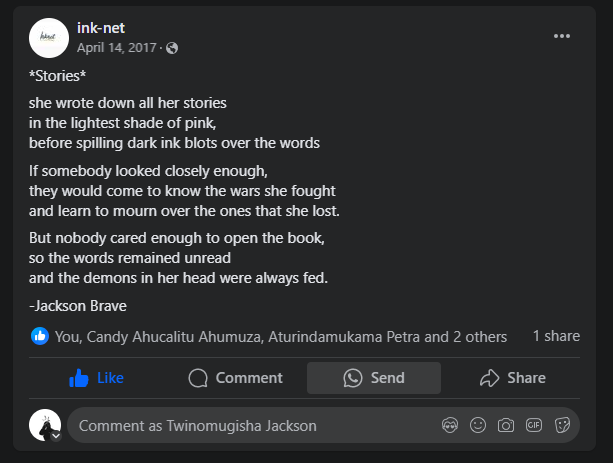

I took on a leadership role within Inknet, becoming part of the programs department. We began organizing poetry sessions around town, giving poets a platform to share their work and connect with audiences. It was a time of creative collaboration, where we interacted with talents like Nze Meddie, Mitch, Devis the Poet and Kohen Jaycee. Many other poets who had been overlooked or abandoned by other communities found a home with us, and they brought their unique voices to our events.
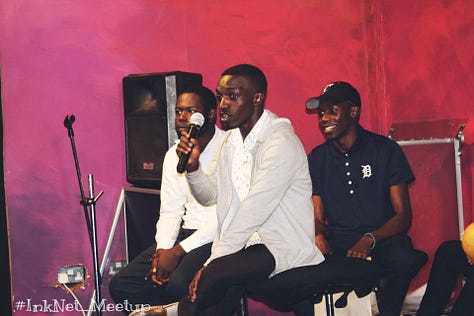
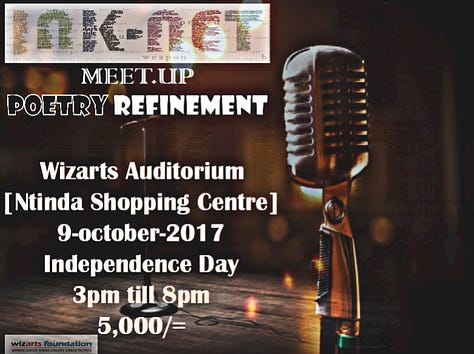
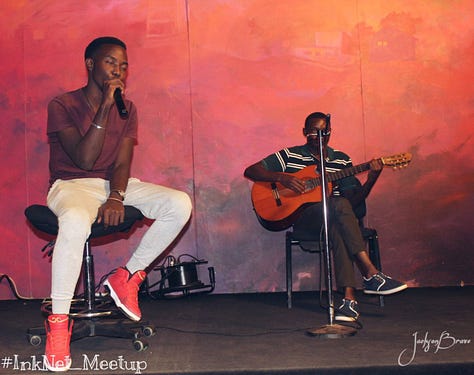
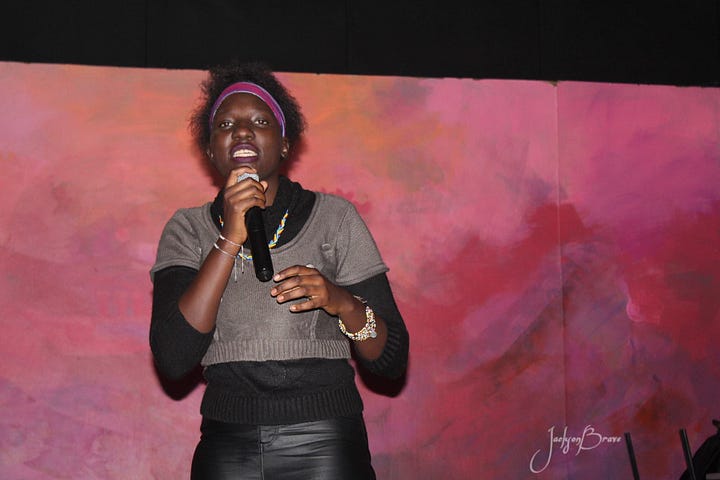

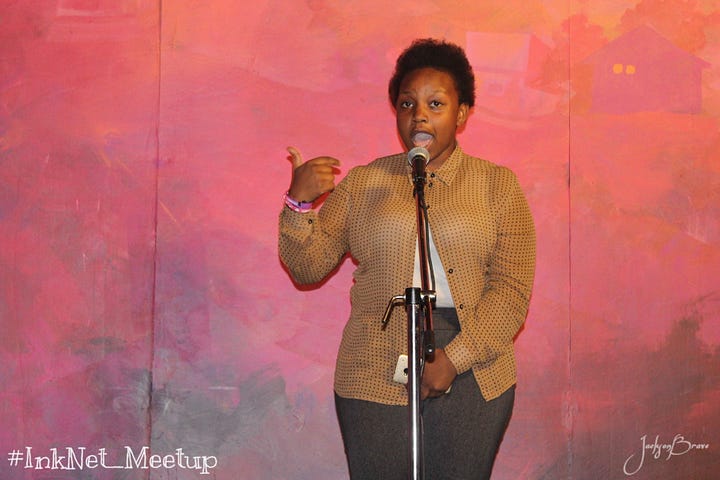
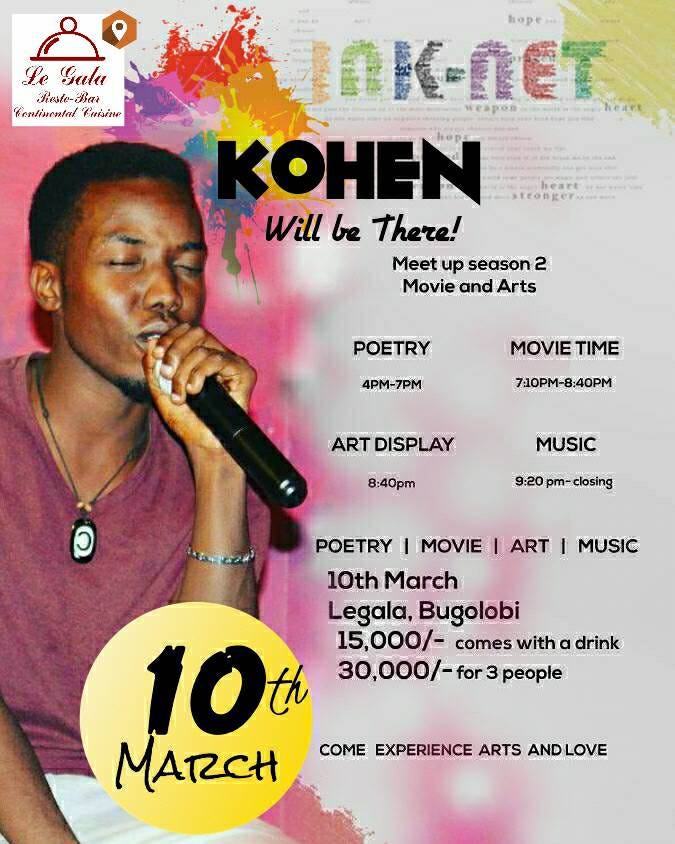
Inknet was a breath of fresh air in the Ugandan poetry scene. It was a place where creativity flourished, where poets could experiment and grow without the constraints of competition or judgement. For me, it was a reaffirmation of the power of community, a reminder that poetry is not just about the individual but about the collective.
In the same season I got introduced to Zonzora @ MUBS and had my time hosting a couple of poetry nights at the Makerere Business School which saw the likes of Laker Patience become a sensational poet and various other poets budding from such spaces
During this time, my love for photography and multimedia took center stage. Multimedia school offered me the opportunity to explore visual arts more deeply, and I found myself practising these forms more than the page and stage arts. Even though I wasn’t as active in performing poetry, I still supported the community—attending events, offering free shoots, and helping poets showcase their work.
This did not stop me from being plugged into different spaces such as Kelele @ MUK, Milege @ MUK, I volunteered to do Photography with Kitara Nation during their Verse in Vac program. I attended as many book launches or open mic sessions and covered a lot of poetry events both as a hired photographer or a hobbyist who loved to capture moments. I helped revise and edit publications as well. So my experience though not so loud but it counts.
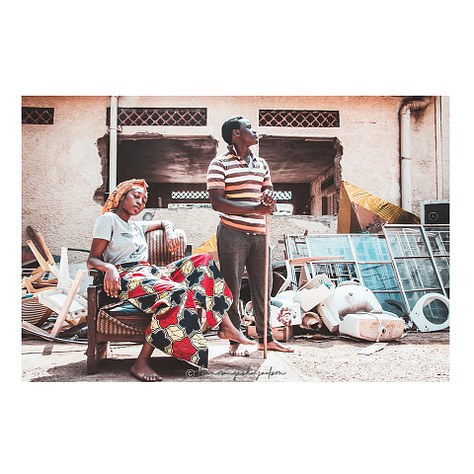
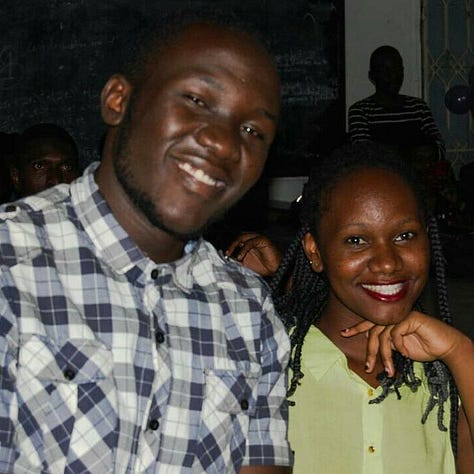
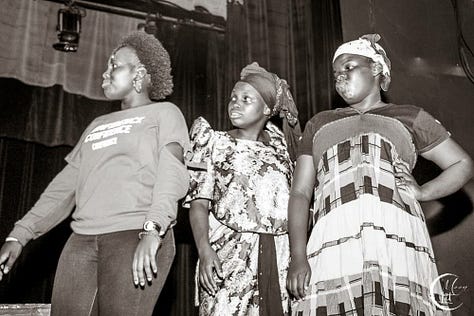
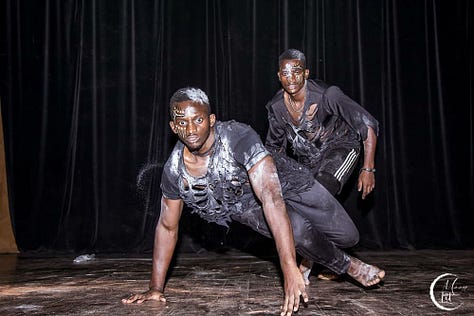
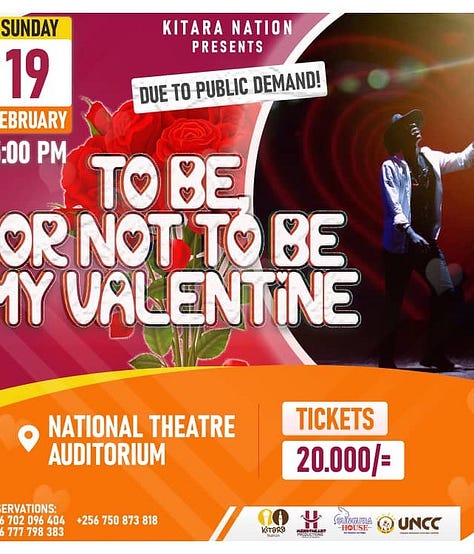
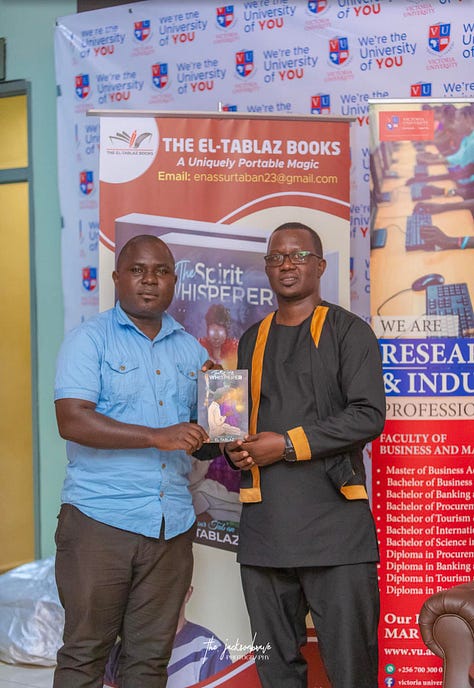
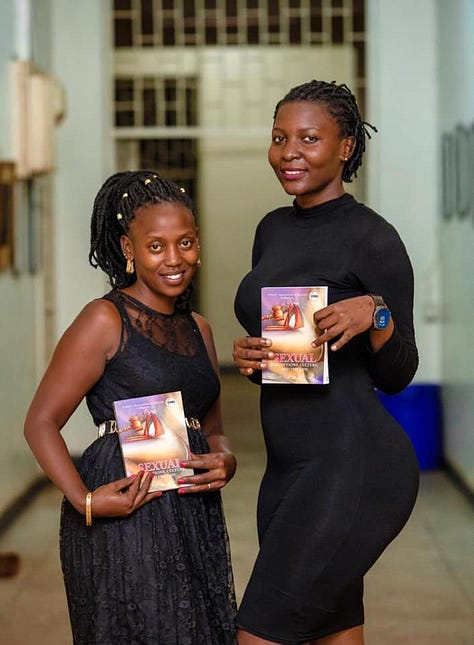
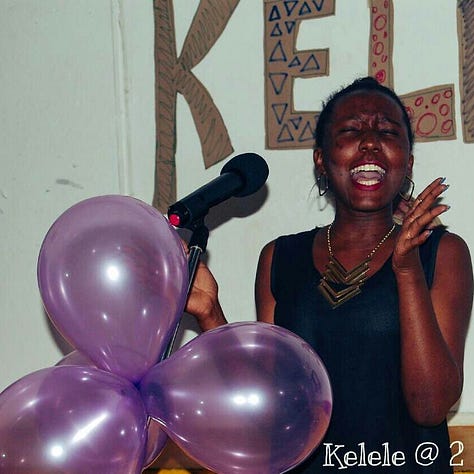
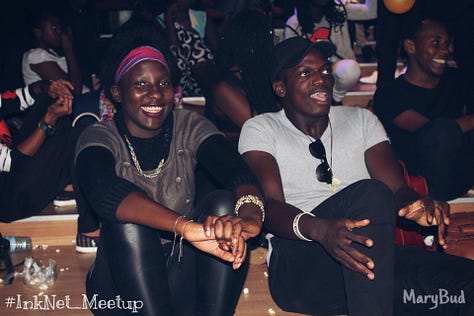
I laugh now at the memory of poets who later told the world that they "owned" me, despite not being able to afford my services. It was a bitter-sweet reminder that while my heart was still with poetry, the reality of making a living in Uganda led me to focus more on building a career in multimedia. Poetry, after all, has never promised a full-time career in Uganda, and this disconnect was part of what drove my desire to see the system change.
The Disillusionment: The Poetry Association of Uganda
But just as I was finding my footing again, life threw another challenge my way. The COVID-19 lock down brought with it a new opportunity to re-engage with poetry through the Poetry Association of Uganda. Initially, I was enthusiastic about this new venture. The association promised to unite poets across the country, to create a space where we could all grow and thrive together.
I led a team in creating "BooksNKnowledge," a platform dedicated to fostering knowledge-sharing and creativity among Ugandan literary minds. We utilized Twitter Spaces to bring together writers, poets, and other creatives for insightful discussions on Ugandan books and literature. These virtual sessions became a vibrant community where we explored the depth of our stories, shared experiences, and inspired each other. "BooksNKnowledge" not only kept the literary conversation alive during a challenging time but also showcased the resilience and creativity of Uganda's literary scene.
PS: - Project was not affiliated to PAU in any way.
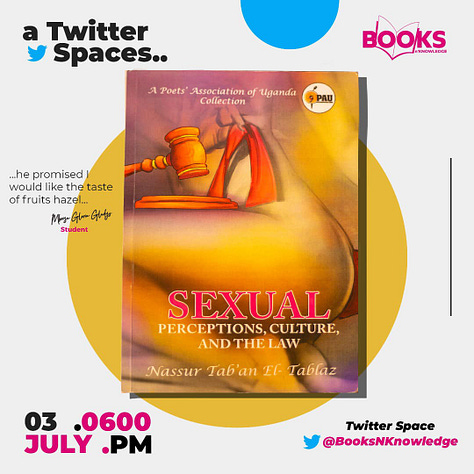
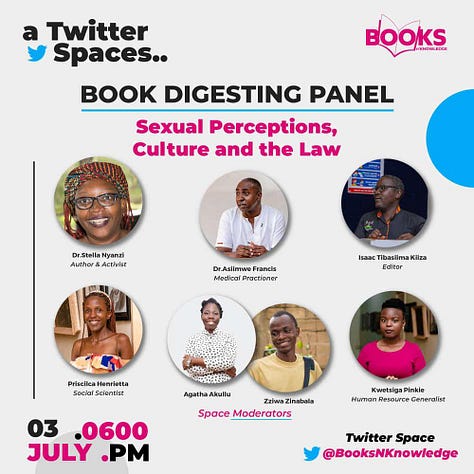
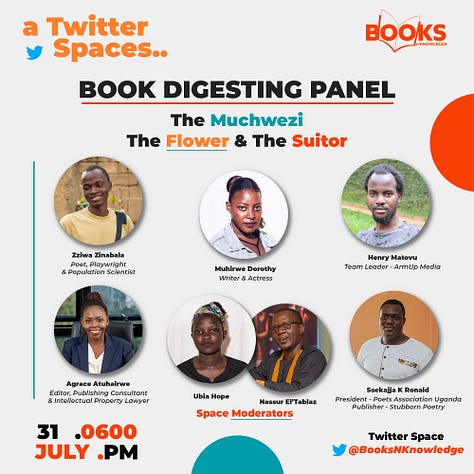
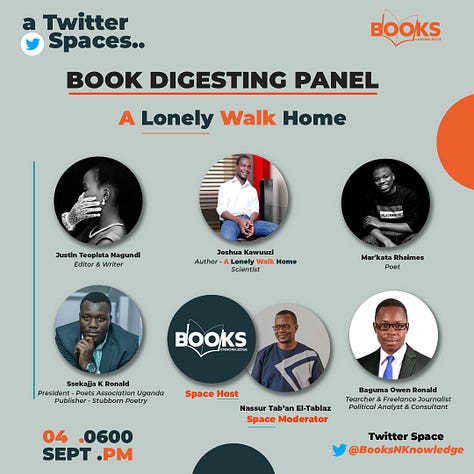
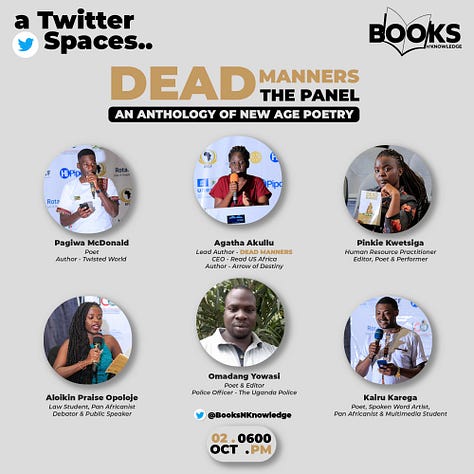
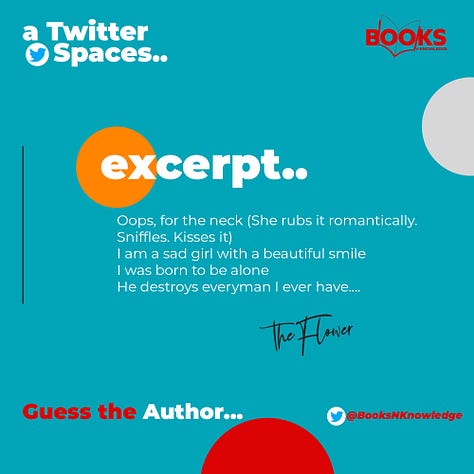
However, it quickly became apparent that the reality was far from the ideal. Internal conflicts and leadership issues began to surface, threatening to tear the association apart from the inside. The very body that was meant to bring unity instead fostered division. Favoritism, competition, and a lack of transparency created a toxic environment that stifled creativity and collaboration and spilled and fueled fights even down the the individual leavel hence killing any project that threaten dominance over individual projects.
As someone who had always believed in the power of community, this was deeply disheartening. Years later on I took on the role of Programs Manager, hoping to nurture future poets and create a space where we could all grow together. But the internal politics proved too much. The association, once a symbol of hope, became just another failed attempt at unity.
The Power Struggle and the Aftermath
The situation reached a boiling point when leaders who had previously abandoned the association returned, seeking to reclaim power. This sparked a motion of no confidence against the president and vice president, leading to expulsions and further division. The group, once vibrant and full of potential, became a battlefield of egos and agendas.
As of the release of this article, it has come to my attention that the Former Vice President turned Current President again resigned from her position before even the term gets half way - History repeats itself.
In the end, many of us chose to walk away, disillusioned by the association’s failure to live up to its promises. We had hoped to build a system that thrived on collaboration and mutual respect, but instead, we found ourselves caught in a web of corruption and self-interest.

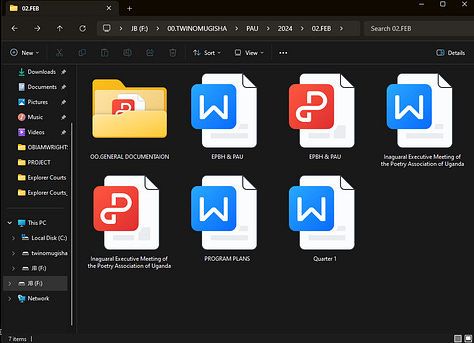







The Poetry Association of Uganda, once a beacon of unity, became just another example of how power can corrupt even the most well-intentioned efforts. Leaders who were more interested in financial gain than in fostering creative growth hijacked the association, leaving the rest of the team to pick up the pieces.
A Reflection: The State of Ugandan Poetry Today
After the turmoil within the Poetry Association of Uganda, many poets chose to focus on their personal lives or start their own initiatives. The leadership that once promised to uplift the community became more concerned with their own interests, leaving the rest of them to fend for themselves.
This experience has led me to question the future of poetry in Uganda. The community is divided, with many poets more focused on criticizing others than on their own growth. The hypocrisy is palpable—poets who preach about integrity and unity often fail to practice what they preach.
The current state of Ugandan poetry is one of potential stifled by division and disillusionment. Many poets have become disillusioned with the very community they once cherished. They have seen how internal conflicts and leadership struggles have overshadowed the art form itself, turning what should be a celebration of creativity into a battleground of egos.
So, where do we go from here? The answer lies in personal and systemic growth. As poets and creatives, we must first address our own flaws before attempting to fix the larger community. We need to embrace the process of growth, even when it’s uncomfortable. We must be willing to clean out the dirt in our systems, rather than simply sweeping it under the rug.
The Ugandan poetry scene is at a crossroads. It can either continue down the path of division and disillusionment, or it can rise above these challenges and become a force for positive change. But this will only happen if poets are willing to put in the work—not just in art, but in character and community.
To move forward, we need to redefine what it means to be a poet in Uganda. It’s not just about writing beautiful words or performing on stage. It’s about being part of a community that values growth, integrity, and collaboration. It’s about using words to uplift, rather than tear down. And it’s about creating a system that supports all poets, not just a select few.
In the end, poetry is not just an art form—it’s a way of life. It’s about finding beauty in the everyday, about using language to connect with others on a deeper level. It’s about speaking truth to power, even when it’s uncomfortable. And it’s about building a community that supports and nurtures each other’s growth.
As I look to the future, I remain hopeful. The Ugandan poetry scene may be fractured, but it’s not beyond repair. With the right mindset and a commitment to growth, we can build something beautiful—something that reflects the true power of poetry. And in doing so, we can create a space where all poets, regardless of their background or experience, can thrive.
This is my call to action. To the poets of Uganda:
Fix yourselves before you try to fix others.
Embrace the process


